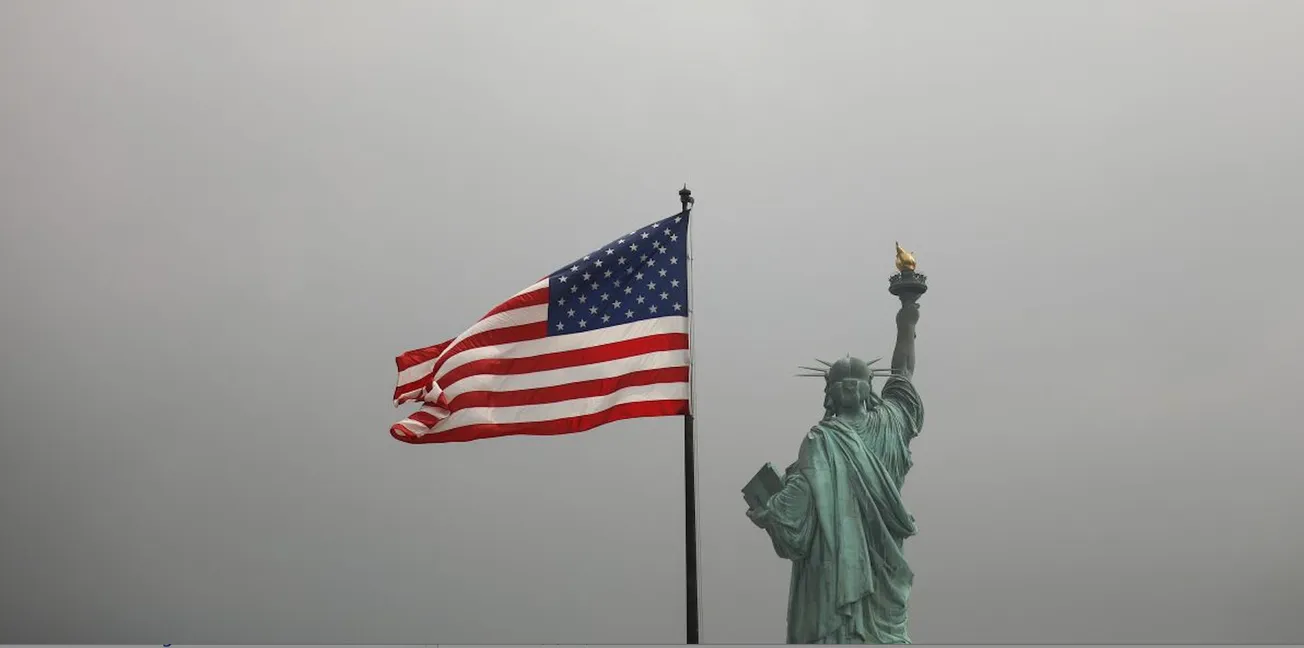Table of Contents
I can confidently say that the most comforting sight I have seen this year was the Star-Spangled Banner at the American Embassy in South Africa. Indeed, every time I see an American flag, I pause and reflect on everything I love about the United States—its rugged individualism, its neverending bravery and its relentless pursuit of prosperity.
Admittedly, as a South African freshman who has never been to the United States, my red, white and blue hopefulness may come across as rather naive. Many American cynics argue that America’s division, typified by the close margins in these elections, makes meaningful progress impossible and has created a land of bitter partisans.
Undeterred by their rhetoric, I spent months sending emails and signing COVID traveling permits before embarking on a six-hour road trip to Durban. At last, I sat in line to interview for my student visa. Among me were people equally hopeful and apprehensive, some turning to the U.S. in search of adventure and others because they had nowhere else to go. I thought to myself that this was the American dream in action. We were all perfectly cliched foreigners imagining what our lives would become when we made it to the promised land, and each of us was immensely proud that the opportunity was imminent.
South Africa—the “Rainbow Nation”—is a state that has triumphed over its past, defying all odds and avoiding a civil war to create harmony today. Nonetheless, America’s message that economic freedom and success are realistic moral ends that need to be reached, inspired us all to leave.
Yet somehow, many of my new American peers that I have since met on Zoom seem to espouse a cynical and absurd notion that the American Dream, whatever it may be, is dead.
In response, I could spew the supposedly paltry platitudes that portray America as a land of opportunity – which are true when it is at its best. But my reason for loving the U.S. is agnostic to whether it is maximally efficient in resource distribution and job creation. Rather than a land where one could potentially build a better life, America is, to many of us, a country where one has the obligation to build one.
As the land of the free and home of the brave, one is expected to engage in civil discourse at the risk of intense backlash, to revel in America’s position as a global bastion of democracy despite the often scathing international scrutiny that comes with it, and to take a chance on some economic opportunity despite the risks. In other words, to create a “more perfect union,” America places itself on the precipice of catastrophe and asks all its citizens to do the same.
The phrase “more perfect” epitomizes the American spirit. Only Americans would stress the necessity to be more perfect. Almost every other country in the world is content with being satisfactory, yet America imposes on her people the notion that their work is never complete. They should be in perpetual motion, ceaselessly awaiting the next opportunity to better themselves and those around them. In Atlas Shrugged, Ayn Rand adopts a different metaphor, suggesting that the view of a railroad track stretching into the horizon well beyond our midst epitomises the ethos of American enterprise because there is always more for one to do in America.
This belief-system is antithetical to how South Africa and many of its neighbours govern. We are perfectly content to maintain the fragile harmony that exists in the status quo because that is a risk-free approach. We assess our painful past and conclude that as long as the present is better, we have succeeded. Americans, however, have the innate gumption needed to be forward thinking. America’s ethos is one for continuous improvement, and this especially evident in the electoral process, because continuous improvement requires self-examination. The seemingly deleterious divisions and anger shown on the media are direct consequences of this self-examination. We therefore ought not to see them as vices, but signals that the Republic is working as intended, searching for the best way forward.
South Africans could never dream of an election this close because it requires a nation unafraid of being divided if it means reinventing itself. We could never picture such fierce partisan loyalty because here, corruption, mediocrity and inadequate services are mere facts of life regardless of who wins the vote. We could never fathom the freedom to confront anyone who disagrees with us, because we, like countless other countries, live by fear, not bravery.
Staring at the broad stripes and bright stars, each of us in that embassy was more than ready to accept that responsibility regardless of the risks that it entailed. To speak of the unlikeliness of becoming a Musk (South Africans’ staple example), a Rockefeller, or even a Leland Stanford misses the point entirely. The American Dream suggests that even the smallest possibility of reaching that height is worth the uncertainty it entails. No matter how delusional each of us may be, that uncertainty is euphoric.









